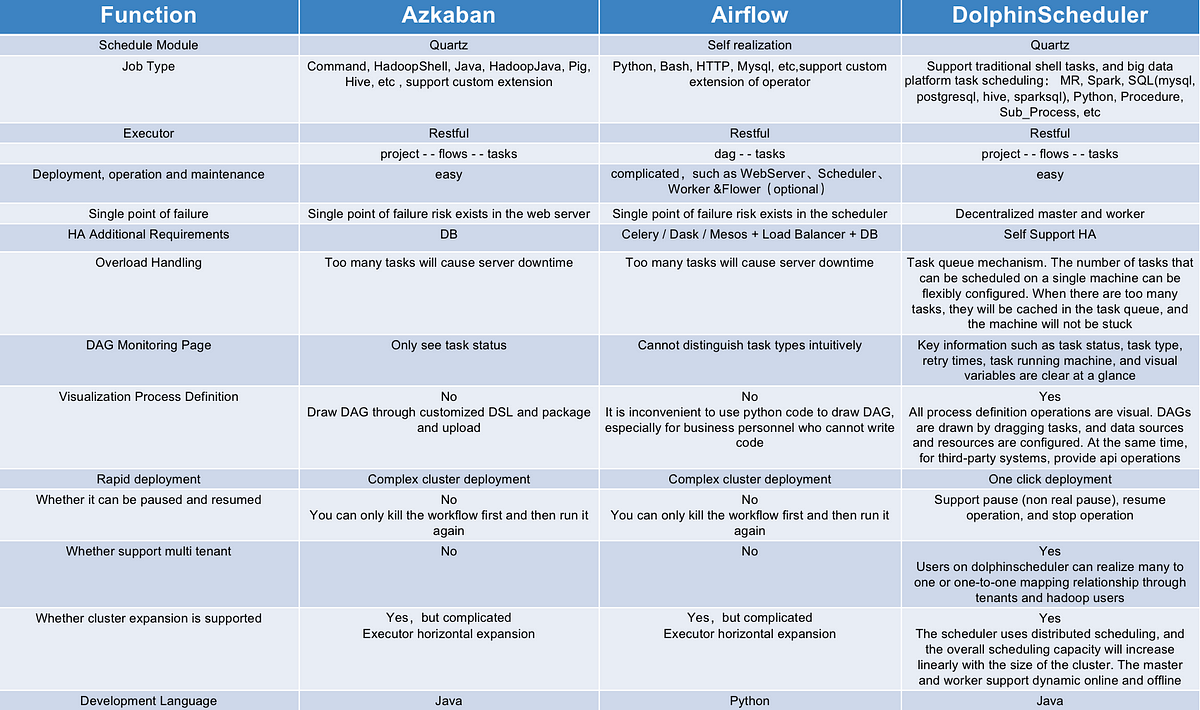Medium
1M
295

Image Credit: Medium
In-Depth Analysis of Workflow Scheduling
- Workflow task scheduling involves triggering and executing a series of tasks based on predefined rules and dependencies.
- The two key concepts of workflow scheduling are Job Plan and Task Instance.
- Workflow scheduling systems are typically divided into two major categories: Timed Sharding Job Scheduling Systems and DAG Workflow Job Scheduling Systems.
- Timed Sharding Job Scheduling Systems are typically used for timed execution of tasks.
- In contrast, DAG Workflow Job Scheduling Systems focus on task dependencies.
- High availability, effective monitoring, flexible task configurations, and scalability are essential features of workflow scheduling systems.
- There are several open-source and commercial workflow scheduling tools available.
- Factors businesses should consider when selecting a workflow task scheduling system include scalability, availability, flexibility, alert mechanisms, and interface friendliness.
- The open-source project Apache DolphinScheduler is well-suited for novices interested in contributing to workflow scheduling technology.
- A suitable workflow scheduling system can provide enterprises with greater flexibility, competitiveness, and efficiency.
Read Full Article
17 Likes
For uninterrupted reading, download the app